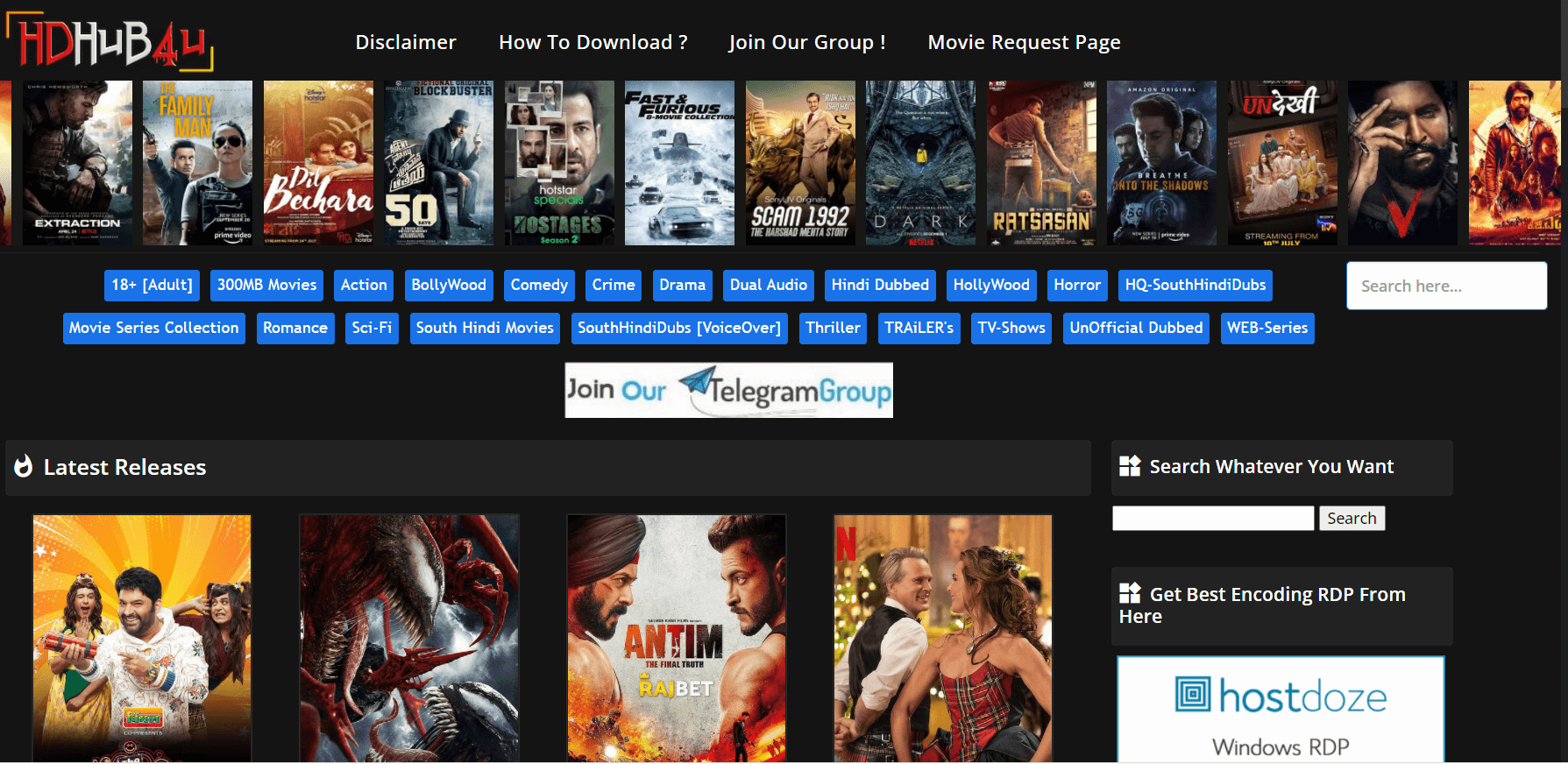HDhub4u: The Impact On Hollywood & Piracy Explained | News
Are you perpetually chasing the cinematic zeitgeist, hungry for the next big release? Then perhaps you've already encountered the digital shadow known as hdhub4u, a platform that has carved a controversial niche in the entertainment landscape.
The allure is undeniable: access to the latest Hindi, Bollywood, South Indian films, Hollywood web shows, K-dramas, TV series, and all the fresh content updates, often presented in high definition, and seemingly at no cost. This accessibility, however, obscures a more complex reality. Hdhub4u, like its counterparts, operates in the murky waters of copyright infringement, a pirate website that challenges the very foundations of the film industry.
This article aims to dissect the phenomenon of hdhub4u, exploring its impact on Hollywood, from its clandestine rise to the ongoing battle against piracy. We'll examine the challenges it poses to content creators and distributors, while also surveying the strategies deployed to counter its influence. We will also address the questions of its sustainability and its ultimate place in the future of entertainment.
The world of streaming services is vast and ever-changing. However, one thing remains constant: The entertainment industry is a battleground, and in the thick of it, stands Hdhub4u.
The very genesis of platforms like hdhub4u is a result of technological advancements in the digital age. The ability to swiftly upload, download, and stream content, combined with the widespread access to high-speed internet, created the perfect environment for piracy to flourish. This ease of access, coupled with the perceived high cost of legal streaming subscriptions, fueled the demand for free, albeit illegal, alternatives. The attraction is simple: a vast library of films and series available at no monetary cost. And the userbase can be substantial, encompassing casual viewers and serious cinephiles alike.
The allure of free content is often the primary draw. Hdhub4u, and similar platforms, offer a seemingly endless selection of movies and TV shows, spanning genres and languages. The promise of "exclusive content" and "latest releases" in HD quality is difficult for many to resist, especially when these films might still be in theaters or available only on subscription services. This is why, despite the well-known illegality, platforms like these have persisted and grown.
But the impact is felt keenly by those who pour their lives and livelihoods into content creation. The financial ramifications are significant. Piracy directly impacts the revenue streams of film studios, distributors, actors, writers, and the entire ecosystem supporting the production of movies and series. When films are downloaded and streamed illegally, the creators lose out on potential profits from theatrical releases, digital rentals, and subscription services.
It's not just a financial issue. Piracy can also undermine the creative process. Reduced revenue might lead to budget cuts, limiting the ability of studios to invest in high-quality projects. This can have a long-term effect on the types of stories that are told, as the industry struggles to find ways to offset its losses. Furthermore, the presence of pirated versions can erode the value of legitimate distribution channels and the overall perception of the film industry. It can impact the market. And this, in the long run, is detrimental to creativity and, ultimately, to the entertainment experiences of audiences. It affects the consumer.
The fight against platforms like hdhub4u is a multifaceted endeavor. Hollywood studios and industry organizations are actively working to shut down pirate websites. Legal action, cease-and-desist letters, and collaborations with internet service providers (ISPs) are employed to block access to these sites. Digital rights management (DRM) technologies, which protect content from unauthorized copying and distribution, are constantly evolving, and employed more and more to combat piracy.
Moreover, the entertainment industry is trying to adapt to this changing landscape by offering better and more convenient content-delivery experiences. Streaming services provide on-demand access to a massive library of films and TV shows. The pricing of streaming services is also evolving to suit the budgets of different viewers. Furthermore, there is a growing emphasis on providing a wider range of content in different languages and genres, catering to a more diverse global audience.
Yet, the battle continues. Pirate websites constantly adapt and evolve. They spring up in new locations, use different domain names, and employ sophisticated methods to evade detection and blocking. The cat-and-mouse game between pirates and the entertainment industry is likely to continue for years to come.
The future of platforms like hdhub4u is uncertain. As the entertainment industry continues its transition to streaming and digital distribution, piracy may adapt to those changes. There are ongoing debates about the role of digital rights management. The availability, pricing, and overall value of legal streaming services are essential factors in shaping the future of entertainment. The fight against piracy will likely remain a significant concern for Hollywood and the global entertainment industry.
As the streaming industry continues to evolve, the presence of sites like hdhub4u underscores a critical question: how do we balance the desire for access to content with the need to protect the rights of creators and the economic viability of the industry? The answer isn't simple, but one thing is clear. The future of entertainment hinges on it.
Hdhub4u is not just a website; it is a symbol of the complex challenges and opportunities of the digital age. It's a reflection of consumer demand, technological innovation, and the evolving landscape of copyright. To ignore it is to miss a critical component of the current conversation about entertainment.


